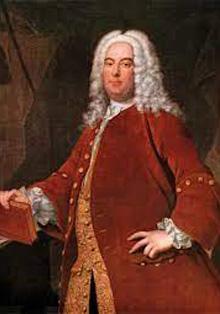Abdelmounim Aoulad abdelkrim
Researcher at the Abdelmalek Essaedi University (Tetouan)
In 1999, King Mohamed VI ascended the throne in Morocco, succeeding his father, Hassan II. Among the most important things that King Mohamed VI had inherited from his father was his excellent diplomatic action and efficient foreign policy. King Mohamed VI, although more focused on domestic issues, opted for a reformism within continuity, and taking into account at all times the variabilities and changes that occurred worldwide. The main objectives of his foreign policy were to maintain the presence and influence that Morocco has had in the international sphere, in order to be able to defend its interests effectively and efficiently, especially with regard to the great question of its territorial unity. The “means to achieve these great objectives [were] good governance, combining domestic policy (…) with a foreign policy capable of interacting with the accelerated international mutations, through an optimal exploitation of Morocco’s democratic development, of the balance of its civilization, of its particular geostrategic location – as an international partner and regional pole – and of neighborliness, moderation and tolerance.
“We can say that during the reign of Mohamed VI, the Moroccan Foreign Policy has undergone some tweaks in terms of methods and means of implementation, a balanced redeployment and a diversification of the axes of action, always seeking a full integration of Morocco into the international community. This change in outlook was particularly noticeable since 2017 with the appointment of Nasser Bourita as head of Foreign Affairs, having the following manifestations.
A. The Africanist vocation
During the reign of Mohamed VI, Africa became a priority issue on Morocco’s external agenda. With the will to promote and strengthen South-South cooperation, and the objective of ending the Vacant Seat policy, Morocco rejoined the Organization for African Union, on January 30, 2017, after 33 years of absence (1984), which resulted in a renewal of relations with respect to this space, understood in Morocco as a “substrate” where the country sinks its roots. The factors justifying this turn in Moroccan Foreign Policy are, first, the will to strengthen Morocco’s positions on the Sahara Question, and thus close roads against the theses defended by SADR within the OAU; second, the control of migratory flows and the fight against criminality and terrorism and, third, there is the economic factor, given that Morocco has many ongoing public and private investments in African countries.
B. The position on pan-Arab issues
The Middle East, the Persian Gulf and the Arabian Peninsula have always constituted one of the priorities of Moroccan foreign policy. However, with Mohamed VI on the throne, some substantial changes were registered. Neutrality with regard to the issues of that area was one of the new orientations of the Policy. Morocco gradually dissociated itself from its mediating role in the conflicts in that area, choosing to distance itself from these issues.
Although Morocco initially participated in the military alliance led by Saudi Arabia in 2015 against the Houthi forces in Yemen, it quickly had to readjust its position to these new trends, first by freezing its participation and then by announcing its definitive withdrawal from the war in 2017. Morocco also declined to take a position on the conflict that broke out between Saudi Arabia and Qatar in 2017.
Another considerable turn of events was Morocco’s decision to normalize its political and diplomatic relations with Israel. On December 20, 2020, Morocco and Israel signed a Joint Declaration pledging to move toward “full, peaceful and friendly diplomatic relations.” As a result of this shift, the United States described the Moroccan Autonomy Plan for the Sahara as sound and viable, just as Israel recognized Moroccan sovereignty over the Sahara, on July 17, 2023.
C. Pragmatism, sovereignty and autonomy in decision-making are the major principles governing Moroccan Foreign Policy since 2017 and which the Kingdom of Morocco wants to impose in its relations with its traditional partners. On August 20, 2022, at the commemoration of the 69th anniversary of the ‘Revolution of the King and the People’, the Moroccan monarch launched an appeal, demanding from his country’s classic and new partners clear positions on the Sahara issue, considering it as a “clear and simple criterion against which the sincerity of friendships and the efficiency of partnerships are measured”. An appeal which for the moment seems to give good results, in view of the new positions of the USA, Israel and Spain with regard to the conflict in the Sahara.
© All rights reserved






